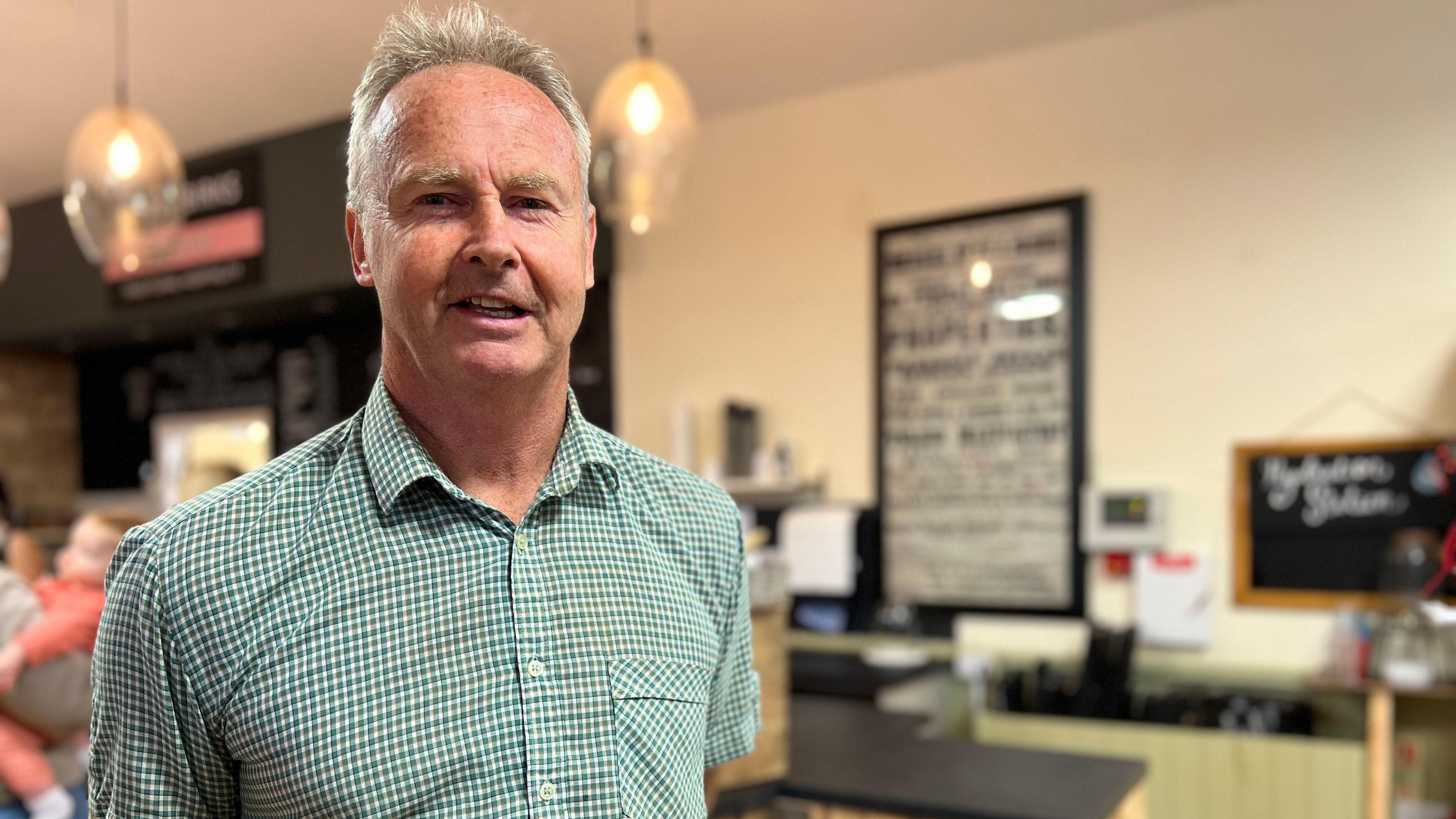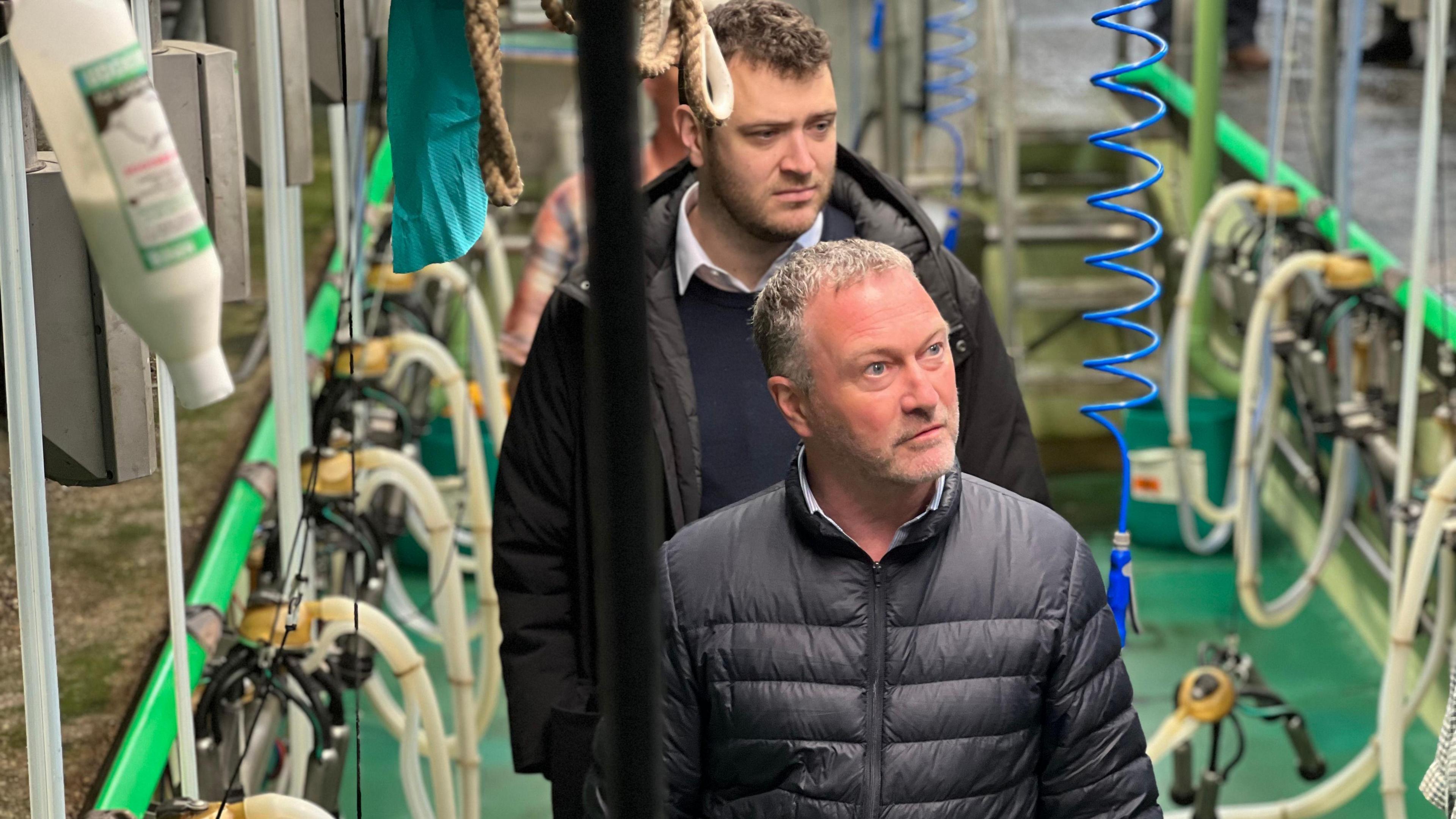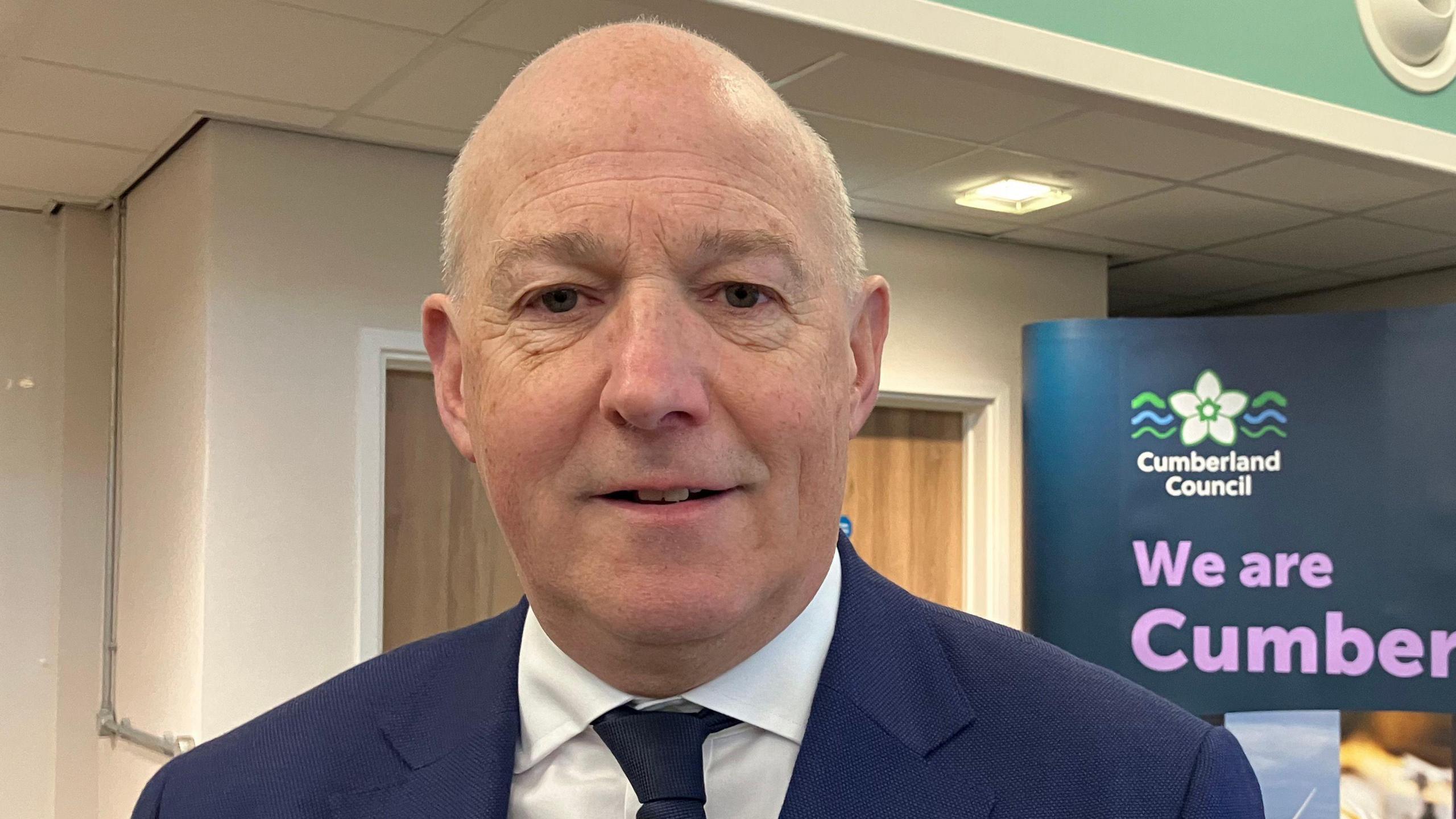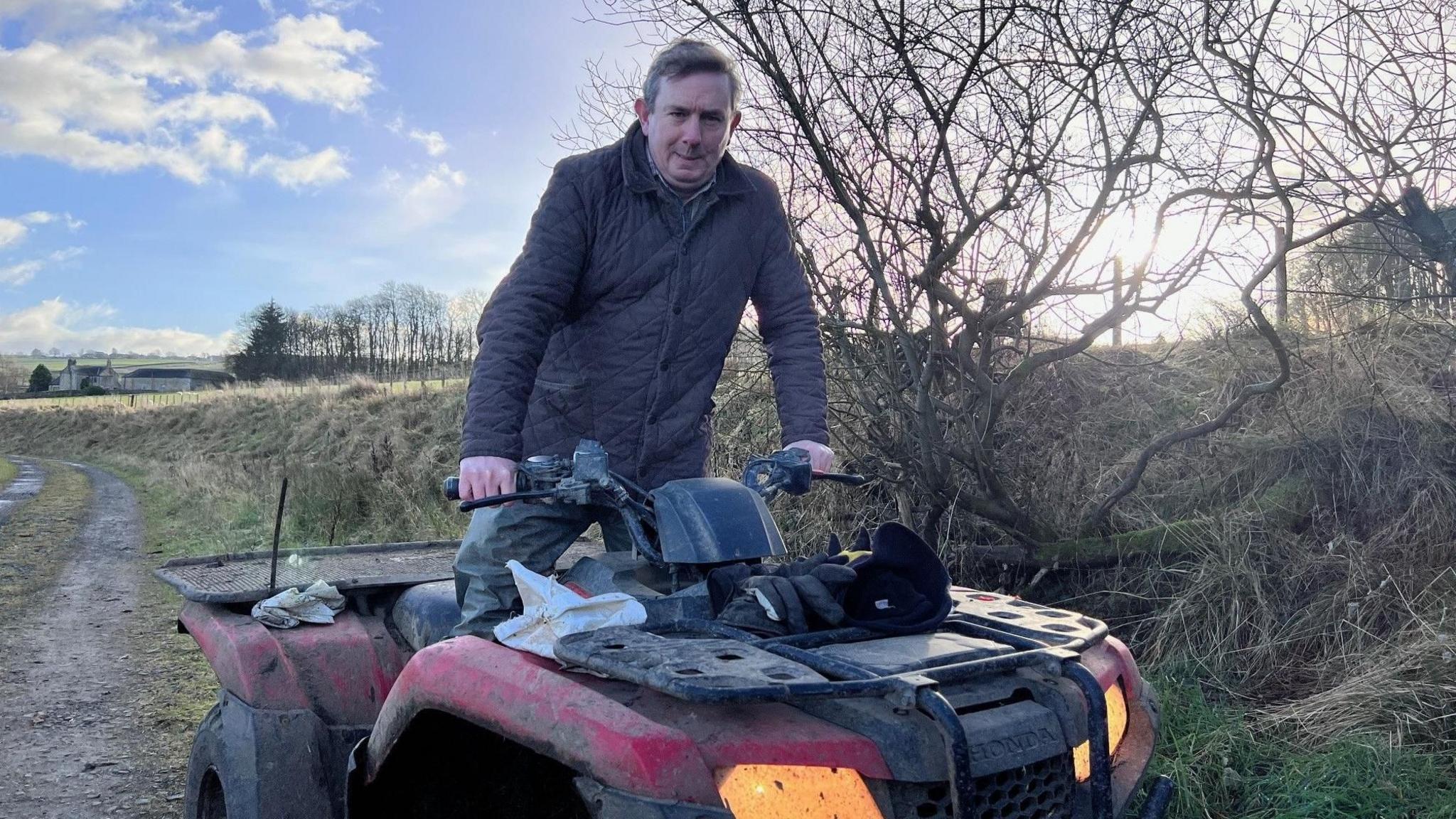Labour targets traditionally Tory rural seats

Farmer Tom Richardson wants politicians to pay attention to the concerns of the industry
- Published
Labour say this election is all about change. And one transformation they are keen to make is to the party's electoral performance in the countryside.
Traditionally the rural vote has been seen as naturally Conservative, but Labour is targeting a number of rural northern seats that have seemed well beyond their reach - not just in recent elections but during their entire history.
Hexham in Northumberland is a case in point.
Since the seat was formed in 1885, it has never returned a Labour MP.
Even in Tony Blair’s 1997 landslide, voters could not quite bring themselves to eject the Tories.
But in 2024, it has been the venue for the first visit by a member of Labour’s top team.
Shadow Environment Secretary Steve Reed might not be the most recognisable member of its front bench, but he will be in charge of farming and rural policy if the party wins the election.

Shadow Environment Secretary Steve Reed and the Labour candidate for Hexham Joe Morris visited a milking parlour
Mr Reed's decision to come to a farm in the Hexham seat is significant.
He came to Wheelbirks near Stocksfield, which is a working farm, but also boasts a popular ice cream parlour.
Mr Reed believes his party has plenty to offer farmers. They say their new Great British Energy company will cut bills that have hit agriculture.
They are also promising to tackle rural crime, and cut red tape that is frustrating UK farmers' trade with their key market on the continent.
He also insisted farmers had been let down by the Conservative government.
"Since 2017, 6,000 farmers and producers have gone bust and a lot of that is because of actions the government has taken, or support the government hasn't given," he said.
And Labour's Hexham candidate now believes they are making enough headway to threaten a seat that the Conservatives won by more than 10,000 votes in 2019.
Joe Morris said: "In rural areas, we've got a real cost of living crisis, we've got a crisis of public services not working, and transport not working for people.
"People are increasingly turning to Labour."

Wheelbirks near Stocksfield is also a popular ice cream parlour
A big poll lead is encouraging Labour to look at seats that might have seemed out of reach in the past.
The last time the party had this kind of poll lead was in 1997 when they won more rural seats than the Conservatives.
There is also evidence from polling by the Country Land and Business Association that they are pulling ahead in rural seats in particular.


Conservative candidate for Carlisle John Stevenson said the party has been committed to the farming industry
The Conservatives insist they have a record to sell to farmers.
John Stevenson is their Carlisle candidate and is defending a seat with two thriving agricultural auction marts.
He said: "The Conservatives have always been very committed to the rural environment and to the farming industry."
Mr Stevenson pointed to the £2.4bn that the government gives to support farmers, external to invest in productivity improvement, the fact that the Prime Minister recently hosted a farm to fork summit in Number 10, and the amount of money that has been spent on rural broadband.
"I contrast that with Labour who are, let's be honest, an urban party," he said.
But the Liberal Democrats are also unconvinced. They have ambitions themselves in Hexham, as well as other parts of Northumberland and Cumbria.
Julia Aglionby, their candidate for the new rural Penrith and Solway seat, said: "The Labour party have no formal policies that actually deal with the issues that farmers are facing."
She said the Liberal Democrats were offering an extra £1bn on top of the Conservative's £2.4bn to support farmers in England.
Ms Aglionby described it as a "massive uplift in payment".
'They need to listen'
Wheelbirks Farm co-owner Tom Richardson was the one who guided Steve Reed around its milking parlour and barns.
A typically cagey farmer, he would not be drawn on where his own vote would go, but he is encouraged that politicians are paying attention to the concerns of the industry.
He said: "I'm really pleased that they all want to come and have a word with farmers.
"But we need some problems ironed out, and whether it's Labour or whoever in charge, they need to listen to farming a little bit more."
Follow BBC North East on X (formerly Twitter), external, Facebook, external and Instagram, external. Send your story ideas to northeastandcumbria@bbc.co.uk
More stories from BBC North East and Cumbria
- Published2 January 2024
